Security
The decision to travel is your responsibility. You are also responsible for your personal safety abroad. The Government of Canada takes the safety and security of Canadians abroad very seriously and provides credible and timely information in its Travel Advice. In the event of a crisis situation that requires evacuation, the Government of Canada’s policy is to provide safe transportation to the closest safe location. The Government of Canada will assist you in leaving a country or a region as a last resort, when all means of commercial or personal transportation have been exhausted. This service is provided on a cost-recovery basis. Onward travel is at your personal expense. Situations vary from one location to another, and there may be constraints on government resources that will limit the ability of the Government of Canada to provide assistance, particularly in countries or regions where the potential for violent conflict or political instability is high.
Syria is not a safe environment for personal travel. Attempting any form of travel in this very hazardous security environment would place you at grave risk. Foreigners may be targets for terrorist attacks, assassination and kidnapping for ransom or political gain. Criminals, taking advantage of the unstable security situation, are also committing violent attacks and kidnapping travellers.
Canadian officials have left Syria. The Embassy of Canada to Syria in Damascus has suspended operations until further notice, and the Embassy of Canada to Lebanon in Beirut’s ability to provide consular and other support throughout the country is very limited. Canadians in Syria and their relatives seeking information should contact the Emergency Watch and Response Centre in Ottawa.
The security situation has deteriorated into open conflict throughout the country, including in major centres such as Damascus and Aleppo. Fighting is generalized, and involves the use of small arms, tanks, artillery and aircraft. In August 2013, the suburbs of Damascus were the scene of a conventional and chemical weapons attack, and Aleppo has been subjected to a government campaign of aerial bombardment and rebel attacks since December 2013. Since September 2014, the international coalition against the Islamic State of Iraq and the Levant (ISIL) has been carrying out aerial attacks on targets belonging to ISIL and other extremist groups.
Syria’s chemical and biological weapons program also contributes to the volatility of the situation, as do allegations of attacks using chemicals, such as chlorine.
Common war tactics have involved blockading entire cities for months with little or no warning, and denying entry to humanitarian aid workers and supplies.
Security forces and the military are using extensive force to suppress uprisings and demonstrations across the country.
ISIL and other extremist groups control large parts of the country, and pose an exceptional risk to foreigners. Areas under these groups’ control are highly dangerous.
Terrorism
The security situation in Syria is very volatile, and violence associated with the conflict is ongoing. The threat of terrorism in Syria from extremist groups such as ISIL and Jabat Al Nusra is generalized. Car bombings and other violent incidents occur regularly, killing and injuring many civilians.
Maintain a high level of personal security awareness at all times, as terrorist incidents occur with no warning. Exercise appropriate caution in crowded places, including pedestrian promenades, shopping malls, open markets and restaurants. Monitor local news reports and follow the advice of local authorities.
Kidnapping
Although kidnappings had already increased throughout Syria, since the beginning of civil unrest in March 2011, 2014 saw a sharp increase in the kidnapping of non-government organization workers and journalists. Kidnappings are common in various parts of the country, including in parts of Aleppo and Damascus.
Kidnapping for ransom is common, as are politically motivated kidnappings by armed and terrorist groups that often result in execution.
If you remain in Syria despite this warning, you should be extremely vigilant when travelling, especially after dark.
Crime
The crime rate has increased in Syria. Exercise a high degree of caution. Ensure personal belongings and passports and other travel documents are in a secure place.
Women’s safety
There have been incidents of women being harassed. Consult our publication entitled Her Own Way: A Woman’s Safe-Travel Guide for travel safety information for Canadian women.
Women in ISIL-controlled territory, such as Raqqah, are at extreme risk of being physically harmed.
Transportation
Aggressive drivers and poor driving standards make road travel hazardous. Avoid driving outside of major cities after dark. Pedestrians should remain vigilant.
Roadblocks and checkpoints have been set up on roads, including major roads and highways in and around Damascus, Aleppo and other major cities, as well as along the Damascus-Aleppo, Damascus-Jordan and Damascus-Beirut highways. Road travel restrictions may be imposed without notice, making travel slow and dangerous. Some border crossings are no longer under the control of Syrian authorities; instead, they are in the hands of opposition groups, including extremists.
Use only officially marked taxis.
See Transportation Safety in order to verify if national airlines meet safety standards.
General safety information
Telecommunication services and road access to and within some cities may be disrupted due to security operations.
Journalists attempting to operate in Syria without official approval from the Syrian government place themselves at considerable personal risk. Foreign journalists are being particularly scrutinized by Syrian authorities. Journalists and other foreigners in opposition-held areas may be harmed, kidnapped or killed by the armed groups operating there. A number of foreign journalists have already been killed, and others have been detained by Syrian armed forces and by other armed groups.
Syrians and foreigners alike can be arbitrarily arrested and detained, and obtaining consular access or information on these cases is extremely difficult. Foreigners, including Canadians, detained in Syria for any reason, cannot assume that Syrian authorities will help them contact their government.
Carry identification documents at all times. Carry a photocopy of your passport and leave another one with a relative or friend at home.



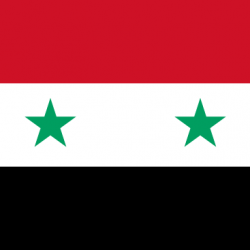
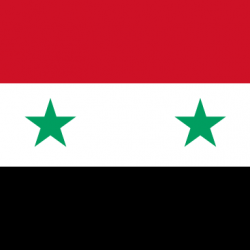
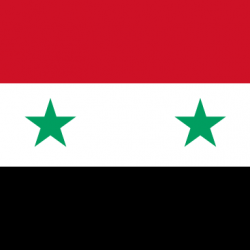


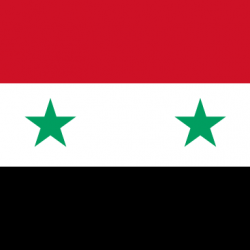
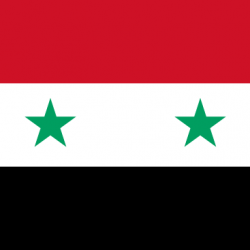
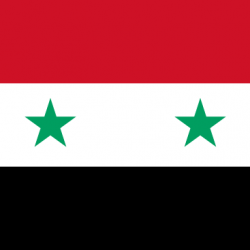
 We will not leak your personal information
We will not leak your personal information